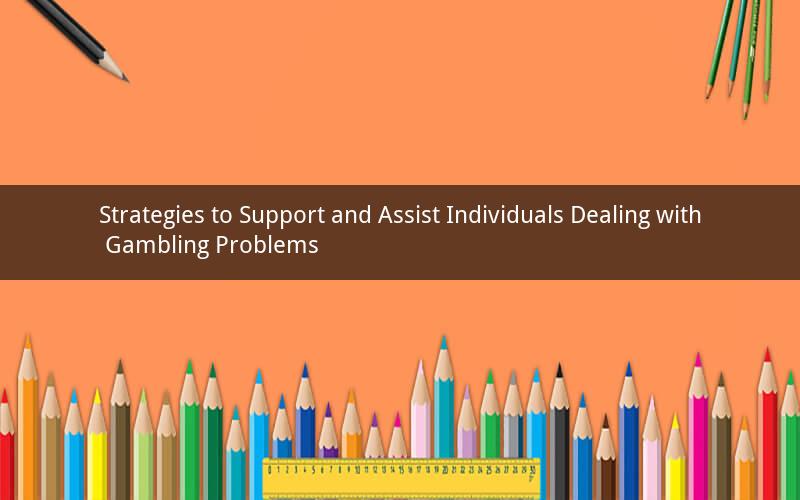
Gambling issues can have a profound impact on individuals and their families. If you know someone who is struggling with gambling problems, it's important to understand how to offer support and assistance. This article explores various strategies to help someone dealing with gambling issues, emphasizing empathy, communication, and professional intervention.
1. Listen and Empathize
One of the most crucial steps in helping someone with gambling problems is to listen and empathize. Many individuals feel ashamed or guilty about their gambling habits, making it difficult for them to seek help. By offering a non-judgmental ear, you can help create a safe and supportive environment for them to open up.
Remember to:
- Be patient and give them the time they need to express their feelings.
- Avoid lecturing or pressuring them to stop gambling.
- Acknowledge their struggles and express empathy for their situation.
2. Educate Yourself
Understanding the nature of gambling addiction can help you provide more effective support. Educate yourself about the signs of gambling problems, the psychological and emotional effects of addiction, and the available treatment options. This knowledge will enable you to offer informed guidance and support.
Key points to consider:
- Gambling addiction is a progressive disorder that can lead to severe consequences.
- Individuals with gambling problems often experience mood swings, anxiety, and depression.
- Treatment options include therapy, support groups, and medication.
3. Encourage Professional Help
Encourage your loved one to seek professional help for their gambling issues. A therapist or counselor can provide personalized support and guidance tailored to their specific needs. Treatment may include cognitive-behavioral therapy, group therapy, or other evidence-based approaches.
Recommendations:
- Suggest they contact a therapist specializing in gambling addiction.
- Offer to help them find a reputable treatment facility or support group.
- Emphasize that seeking professional help is a sign of strength, not weakness.
4. Set Boundaries and Support Systems
Establishing boundaries and creating a supportive system can help your loved one manage their gambling problems. Encourage them to:
- Limit their access to gambling opportunities, such as canceling credit cards or avoiding casinos.
- Create a budget and stick to it, ensuring they have enough funds for essential expenses.
- Surround themselves with supportive friends and family members who can offer encouragement and guidance.
5. Be Patient and Persistent
Recovery from gambling addiction is a long and challenging process. Be patient and persistent in your support, even if progress seems slow. Celebrate small victories and acknowledge their efforts to overcome their addiction.
Remember to:
- Offer ongoing encouragement and reassurance.
- Be available to listen and talk when they need it.
- Continue to provide support even after they have completed treatment.
Frequently Asked Questions
1. Q: Can I help my loved one stop gambling on my own?
A: While you can offer support and encouragement, it's important to recognize that gambling addiction requires professional intervention. Encourage your loved one to seek help from a therapist or counselor to address the underlying issues.
2. Q: How can I tell if someone has a gambling problem?
A: Look for signs such as secretive behavior, mood swings, financial difficulties, and an increased amount of time spent on gambling activities. If you suspect a problem, encourage them to seek professional help.
3. Q: What if my loved one refuses to seek help?
A: It's important to respect their decision, but continue to offer support and express your concerns. Encourage them to consider the consequences of their gambling habits and the potential benefits of seeking help.
4. Q: Can therapy help someone with gambling problems?
A: Yes, therapy can be highly effective in treating gambling addiction. Cognitive-behavioral therapy, group therapy, and other evidence-based approaches can help individuals develop healthier coping mechanisms and address the root causes of their addiction.
5. Q: How can I support someone who has completed treatment for gambling addiction?
A: Continue to offer your support and encouragement. Attend support group meetings with them if possible, and be available to listen and talk when they need it. Celebrate their progress and remind them that recovery is a lifelong journey.